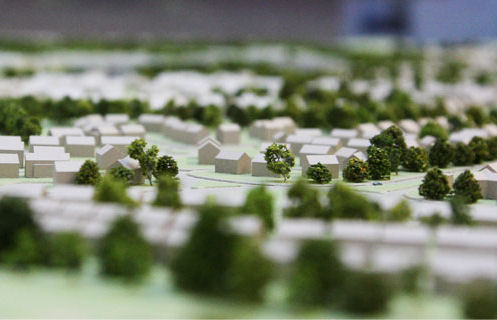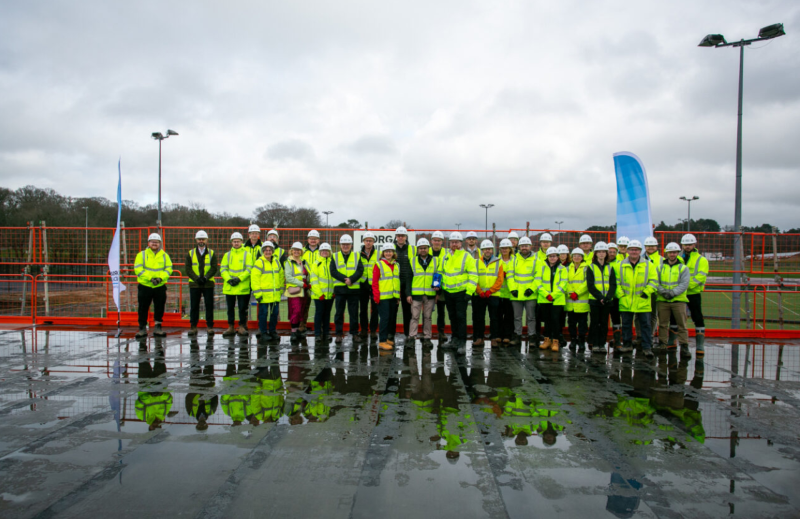Innovative biomass projects across the UK have been awarded £37 million in funding, as the government drives forward its plan to scale up domestic renewable energy, including from biomass.
Increasing the growth of elephant grass (miscanthus), farming seaweed off the North Yorkshire coast, and increasing the harvesting capacity for willow are among 12 projects receiving a share of £32 million funding under Phase 2 of the Biomass Feedstocks Innovation Programme, which aims to find new ways to increase biomass production in the UK.
Also announced are 22 winners of the first stage of the Hydrogen BECCS programme, with £5 million funding to help develop innovative technologies to produce hydrogen, a clean fuel that emits only water vapour when combusted, from sustainable biomass and waste.

Biomass, a sustainable plant material, can be used to produce biofuels and sustainable aviation fuels, or to create chemicals for household cleaning products and bio-plastics. Biomass’ ability to deliver at scale has already been proven, having generated 12.6% of total UK electricity in 2020, forming an important part of our plans to generate more home-grown power and strengthen Britain’s energy security.
Energy Minister, Greg Hands, said: “Accelerating home-grown renewables like biomass is a key part of ending our dependency on expensive and volatile fossil fuels.
“This £37 million of government investment will support innovation across the UK, boosting jobs whilst ensuring greater energy security for years to come.”
Backed by the independent Climate Change Committee, biomass will form an important part of the UK’s future renewable energy mix, which will be vital for ensuring the UK’s energy security and reducing reliance on expensive fossil fuels.
Through Phase 2 of the Biomass Feedstocks Innovation Programme, projects will be developed from the design stage, which was supported with £4 million government funding, into full demonstration projects, showcasing new methods to grow sustainable biomass materials, which can be used to produce low-carbon energy. The projects will boost biomass productivity in the UK, through breeding, planting, cultivating and harvesting of organic energy materials.
Theoday’s winners include:
- Aberystwyth University, Wales, which is receiving over £2 million for their ‘Miscanspeed’ project, looking at accelerating the breeding of high-yielding, resilient miscanthus (elephant grass) – grass varieties that are well-suited for biomass use
- SeaGrown Limited in Scarborough, which is receiving over £2.8 million to develop new techniques to farm and harvest seaweed off the North Yorkshire coast, taking advantage of seaweed’s qualities as a source of biomass and its ability to remove carbon from the atmosphere
- Agri-Food and Biosciences Institute in Belfast, which is receiving over £1.5 million for their ‘EnviroCrops’ project, developing an app to enable farmers and land managers to make informed decisions about planting perennial energy crops, helping to optimise biomass choices for a given land area
The Hydrogen BECCS Innovation Programme supports the development of technologies to produce hydrogen generated via ‘BECCS’ (bioenergy with carbon capture and storage).
BECCS technology can uniquely offer the ability to remove carbon dioxide from the atmosphere, as the CO2 absorbed during the growth of the sustainable biomass and the organic content found in waste can then be permanently removed from the atmosphere using carbon capture technologies.
Hydrogen BECCS technologies will support the government’s plan to build a hydrogen economy, making hydrogen a clean fuel to use in hard-to-decarbonise sectors such as transport and heavy industry, while also removing greenhouse gases from the atmosphere.
This government backing for innovation in biomass production will help support the government’s plans to scale up and accelerate clean, renewable energy in the UK, to protect the UK’s domestic energy security. Supporting trailblazing hydrogen BECCS technology will help further the government’s ambition to see hydrogen as the clean super-fuel of the future, while also encouraging green investment into the UK and supporting the creation of new jobs.
The Hydrogen BECCS projects receiving funding include:
- the University of Aberdeen, Scotland, which is receiving £220,239 to develop an innovative and sustainable process to obtain hydrogen from the organic matter present in different types of waste
- the University of Leeds which is receiving £249,984 for their H2-Boost project, which aims to produce biohydrogen for the UK transport sector
- 17Cicada Ltd in Stevenage which is receiving £237,065 to develop technology to produce hydrogen from bacteria




















